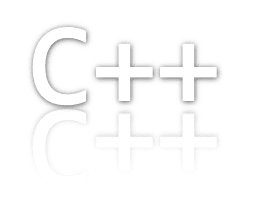C++11 threads, affinity and hyperthreading -- Eli Bendersky
How to use C++11 threads library for setting various attributes related to thread affinity/hyper-threading.
C++11 threads, affinity and hyperthreading
by Eli Bendersky
From the article:
This post is not a tutorial on C++11 threads, but it uses them as the main threading mechanism to demonstrate its points. It starts with a basic example but then quickly veers off into the specialized area of thread affinities, hardware topologies and performance implications of hyperthreading. It does as much as feasible in portable C++, clearly marking the deviations into platform-specific calls for the really specialized stuff.

 Nice use of modern C++:
Nice use of modern C++: An interesting article:
An interesting article: As we enter 2016, here is another reminder of just how much has happened for C++ in just the past year:
As we enter 2016, here is another reminder of just how much has happened for C++ in just the past year: A lot has happened in C++ in 2015! As we close out the year, here's a retrospective from an experienced C++ developer:
A lot has happened in C++ in 2015! As we close out the year, here's a retrospective from an experienced C++ developer: